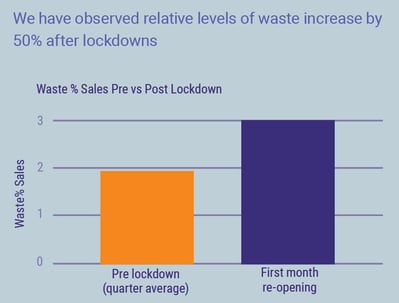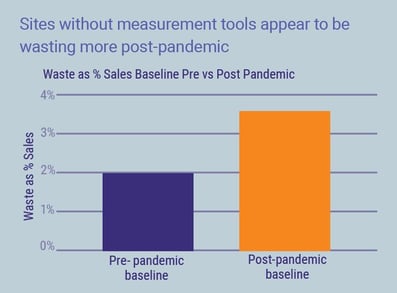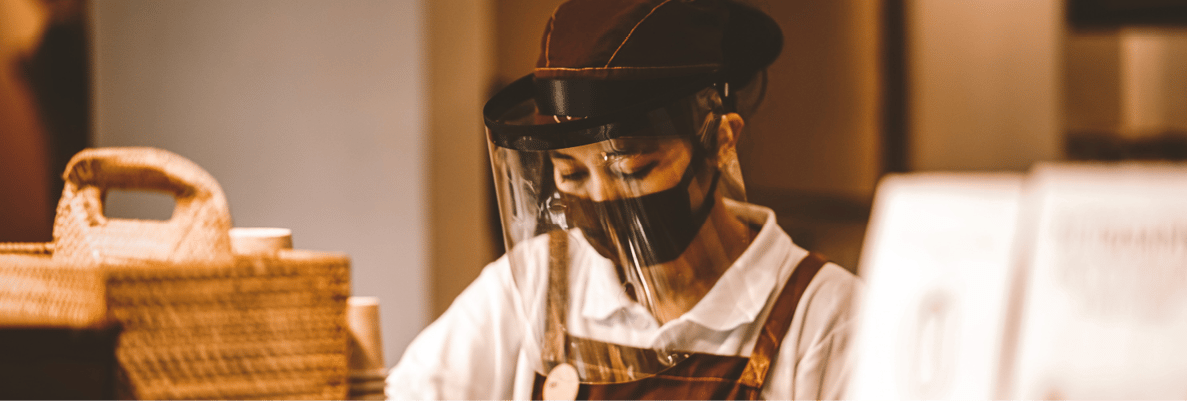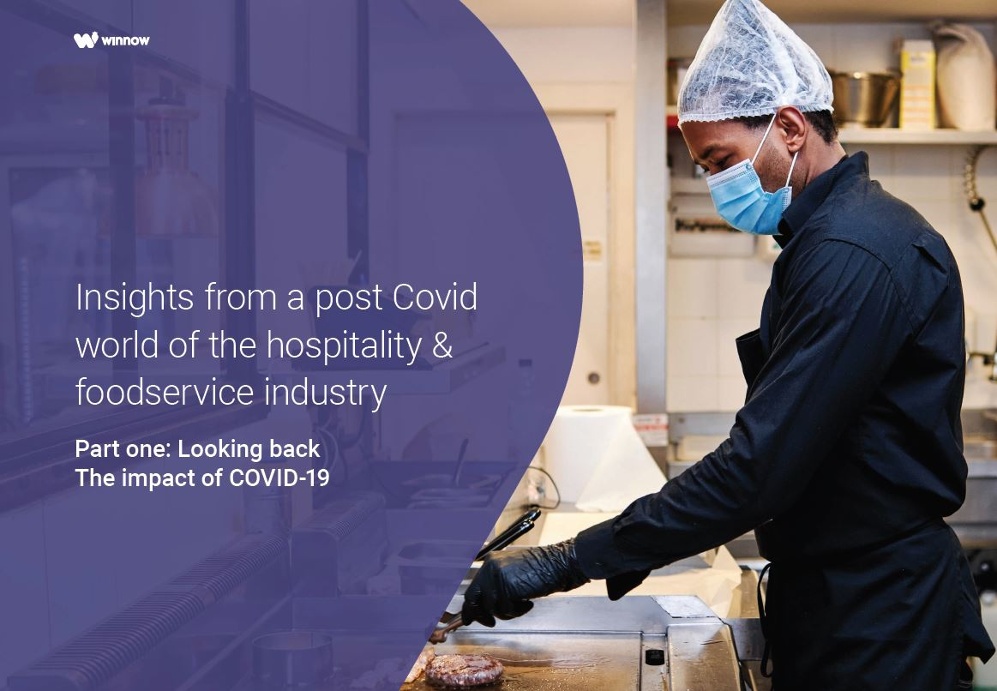There is no doubt that the hospitality and foodservice industry have suffered an unprecedented blow from the global pandemic. Some sectors, such as the cruise industry, have still experienced limited or no return. Where kitchens have been able to open their doors again, we have seen significant uncertainty within the reopening journey. Teams struggle to forecast daily consumer demand and changes in consumption patterns. This uncertainty in demand contributed to a 50% increase in the relative level of food waste after lockdown.
Winnow works with hospitality teams and chefs all over the world to help them measure and prevent food waste. We serve customers in over 40 countries, across the diverse sectors of contract catering, hotels and resorts, cruise ships, casinos and retailers.
A global presence provides an opportunity for us to benchmark the impact of the pandemic on levels of food waste. Crucially, we can also share the reopening strategies that kitchens can employ to guard against it.
Where kitchens have been able to open their doors again, we have seen significant uncertainty. For instance, uncertainty in demand is a consistent challenge for almost all operators. As kitchens reopen, teams struggle to forecast daily consumer demand and changes in consumption patterns.
This uncertainty caused increased levels of food waste after lockdown. Although total levels of food waste have fallen due to closures and reduced demand, Winnow has observed that relative levels of waste increase upon reopening.
Data collected in kitchens around the world support this. When looking at waste as a proportion of sales, a typical kitchen could expect relative levels of food waste to increase by as much as 50% in the first month of reopening.

Feedback from our customers indicates that many are already building food waste reduction plans into their reopening strategy. Event caterers Amadeus are focused on building back more efficiently:
“Amadeus’ focus is on making sure that we come out of this bigger, better and stronger. If we focus our efforts on reducing food waste, our operation becomes more sustainable which naturally has positive impact from a cost point of view.” - Marc Frankl, Food & Beverage Director, Amadeus
The old adage, “what gets measured gets managed”, has never been more true than in a kitchen environment. The pandemic has resulted in even higher staff turnover and changes to menus and costs. Each of these areas can significantly impact the profitability of the kitchen.
The impact on sites who adopted food waste measurement tools pre-pandemic vs those who had not is different. At Winnow we set a ‘baseline’ at the beginning of every reduction program - this is a measurement of the levels of waste in the kitchen before any interventions are made.
Post-pandemic we are seeing sites that we would have previously expected to have a waste value of around 2% of their sales total now recording upwards of 3.5%. This shows the impact the fluctuating demand is having on sites without measurement tools in place. This finding underlines the importance of as you start opening up, if you were not measuring food waste before, getting serious about measuring it.

As kitchens slowly begin to reopen once again, the team at Winnow are focused on supporting our clients and the wider sector in this recovery. We have created a whitepaper series to help operators navigate through this difficult period.
In the first part we look back at the impact of the pandemic, and how we might all learn from each other. It is full of practical tips from the front line of hospitality, supported by data from kitchens around the world. If you are interested in reading more about this, download the full whitepaper here.










Comment on my blog